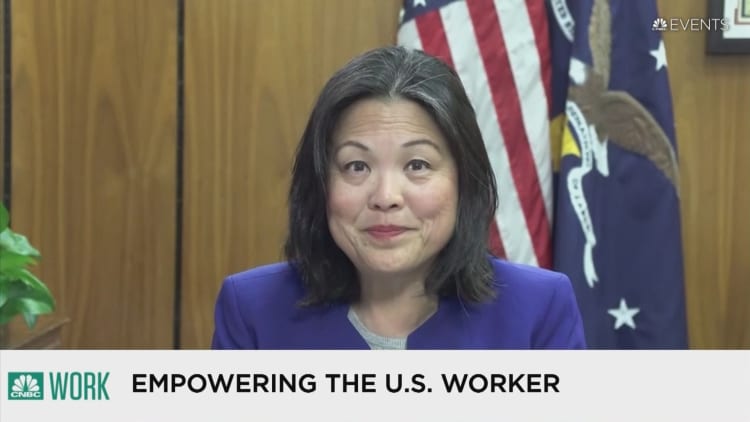The ongoing rise of artificial intelligence in business is causing a lot of distress on both sides of the labor market. Recent surveys show that AI spending is going to increase at a majority of firms, but workers may be better off worrying about upskilling for jobs to match AI advances rather than fearing AI will cause their jobs to vanish.
Companies are increasingly citing AI as a top priority and budget item. A survey of more than 1,000 U.S. senior executives by Infosys found that a majority of respondents said their organizations plan to increase AI spending and 68% plan to ramp up their spending on gen AI, specifically.
Meanwhile, a December EY survey of 1,000 U.S. workers who are at least somewhat familiar with AI showed that 75% said they are concerned AI will make certain jobs obsolete. Even more alarming, about two-thirds said they are concerned about AI replacing their own job.
But many organizations are facing a skills "deficit" when it comes to key technologies. Roughly 1 in 5 companies (18%) say lack of skills and talent for AI implementation is their biggest challenge, while 41% say upskilling and reskilling workers is their plan. Lack of internal technical skill sets was ahead of concerns such as cost constraints and lack of consensus over which emerging technologies to prioritize.
"Despite 70% of respondents expressing concerns about their workforce's ability to adapt to technological advancements, companies are increasing budgets for training and upskilling," said Anant Adya, executive vice president of Infosys Cobalt. "This highlights a critical need for a balanced approach that addresses both workforce concerns and the imperative for companies to acquire the right talent to stay competitive."
As AI adoption continues within organizations, companies need to rebuild their training programs to help alleviate some of the disconnect between AI fears and reality, and ensure they have the talent in place for long-term success.
"Employees can then understand that their jobs aren't going away entirely, but shifting to be more focused on high-level business goals, giving them time to focus on the skills [and] work needed for true innovation," said Carl Froggett, CIO at cybersecurity company Deep Instinct. "Generally speaking, job replacement fears are being overblown, and we won't see roles become irrelevant over the next few years."
The cybersecurity industry is a prime example of where there is a shortage of technology talent trained on specific high-demand skills like cryptography, data leakage, threat prevention, risk control, and auditing, which opens up an opportunity for upskilling and increased training.
It's also important to keep in mind that as AI becomes fully integrated into an organization, younger generations won't have the same hands-on experiences around workplace tasks such as troubleshooting, outages, and security incidents, as much of this will be automated by AI.
"Organizations must have a plan set now to continue building and shaping people's skills and careers as AI removes some of the built-in, essential building blocks the employees have become accustomed to," Froggett said.
Colleges and universities can play a big role in helping to ease the technology talent shortage, and focusing education on critical building blocks for younger generations before they enter the workforce, according to experts, and in fact, AI degree programs are booming.
It's impossible to anticipate all of the unintended consequences of using AI in existing roles, but that is the nature of technological change. "Just like we use spreadsheets instead of graph paper, technology will continue to evolve roles over time," Froggett said. "And we should embrace and adopt new skills to leverage it."






